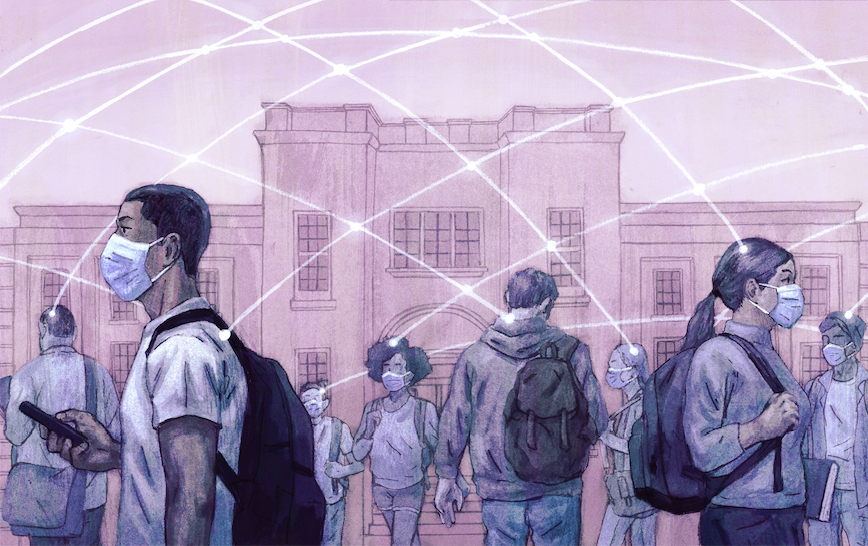A key theme of this pandemic is that a lot of people have shown their true colors, and this can’t be any more pertinent than on social media.
I’ve seen people from celebrities to my peers post pictures and videos from parties, get-togethers or working out without masks or social distancing, as if there wasn’t a global pandemic occurring. Still, it has been somewhat reassuring to know that I am not the only one bothered by these actions.
Along with these posts have come multiple comments from peers about their lack of safety and the selfishness they exhibit by behaving recklessly, and though they come with pure intentions and justified frustration, the comments do not always have the intended effects.
It is here we must ask ourselves: “How much responsibility should students take over calling out their peers when it comes to socially distancing?”
Having a stigma around not social distancing is a good thing if the people learn from their mistakes. As “cancel culture” has amassed, however, I have found that people who are shamed into realizing they are wrong are less likely to feel bad about their actions and more likely just trying to save face.
And that’s if it even works.
While celebrities have been apologizing after being criticized, many within our community have just continued living their lives with no change, and if they address the criticism, they resort to calling people “haters” or making a mockery of others’ concern.
Those who don’t address it merely begin to post their non-social distancing photos on their private accounts and stories in order to hide their actions.
At the end of the day, there comes a point where our frustration can only do so much, and it simply is not worth it to put so much time and energy into checking others’ actions. Students’ main focus should be to feel safe within their family unit and feel confident with the precautions they have been taking.
Yes, it is frustrating because these same students are the ones complaining the most about online school (oh, the irony), but being constantly upset at them will not change their behavior and will only add to the unease and anger of the ones who actually are being safe and responsible.
The only way they will learn is through some form of disciplinary action, but there are some other ways students can help.
If your friend group is not taking the pandemic seriously, let them know of the consequences of their behavior and don’t join them in places where you feel uncomfortable. Encourage your peers to form Covid pods, which are safe units of uninfected people who do not meet anyone outside of themselves, if they are craving that social interaction. But most importantly, make sure you are taking care of yourselves and your family.
If there is anything to learn from this pandemic, it’s that the only thing we have total control over are our own actions. So keep yourself in check, be a good example and trust that others will learn and get on board.
























